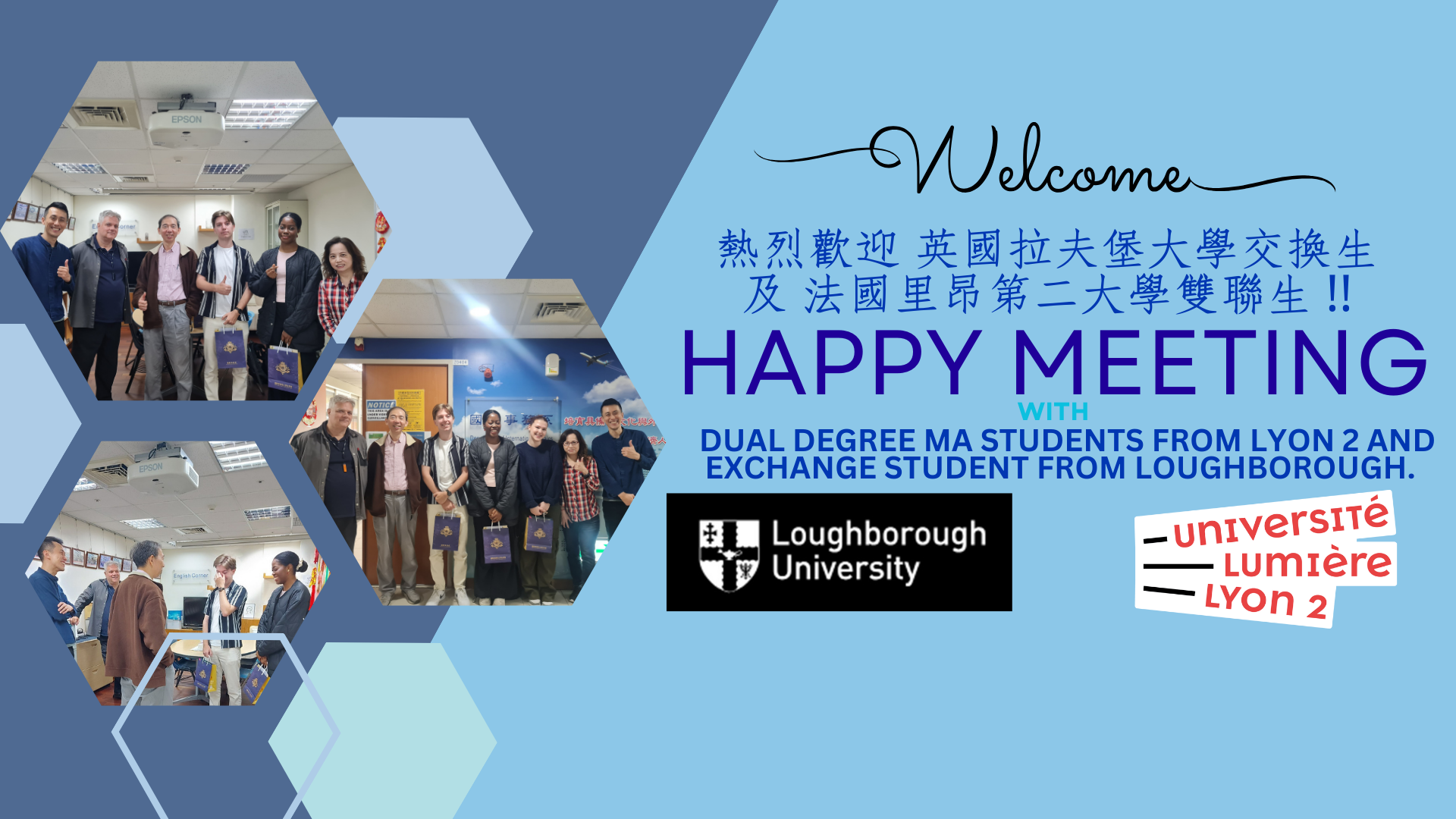【活動】教師社群活動-周志杰教授分享-Teaching in English:Sharing Experiences From the Course of Political and Economic Risk Analysis in Asia PACIFIC 英語授課的虛實: 亞太政經風險分析課程的教學經驗分享
發布日期 2025-05-29 09:57:00
教師社群活動-TEACHING IN ENGLISH:SHARING EXPERIENCES FROM THE COURSE OF POLITICAL AND ECONOMIC RISK ANALYSIS IN ASIA PACIFIC英語授課的虛實: 亞太政經風險分析課程的教學經驗分享
由國際學院與國際事務系共同合辦的教師社群「International Affairs, AI, and EMI Synergy」於2025年4月16日在Z406教室舉辦一場分享會,特別邀請成功大學政治學系周志杰教授,以「Teaching in English: Sharing Experiences from the Courses of Political and Economic Risk in Asia Pacific英語授課的虛實:亞太政經風險分析課程的教學經驗分享」為題進行分享。
周教授指出,社會科學領域的EMI課程設計可從三個核心要素出發。第一是「場景」:在台灣的大學校園中探討台灣與東亞等議題,對外籍學生而言本身即是一個豐富且有意義的學習場景;第二是「主題」:選擇國際局勢分析或國家介紹等題材,並鼓勵學生以英文發表,能提升其參與感與臨場感;第三是「教材與活動」:透過精心設計的教材與課堂活動,促進本地生與外籍生共同合作,營造全英語的學習環境,鼓勵學生勇於開口使用英文。
在課程實務層面,周教授以其於研究所開設的「亞太政經風險分析」課程為例,分享從課綱設計、教材選擇、課堂活動、測驗方式到報告要求等,如何整體建構出一個有效的英語學習環境。他強調,授課教師宜提供與課程主題相關的英文資源與學術文獻,協助學生進行課前準備;此外,透過文獻評論(critique)訓練學生的學術寫作能力;在教學簡報中,適時圖像化重點概念,有助於引導學生專注與思考;並透過課堂中的即席討論,鼓勵學生用英語進行意見交流與觀點辯論。
本次分享會中,與會教師們也積極參與提問,關注EMI教學成效的評估方式;國際事務系的教師們則分享自身在文藻推動EMI課程的經驗。此次跨校交流不僅激發更多教學創意,也為未來EMI課程的深化發展注入新思維。(7/4.39)
The teacher community “International Affairs, AI, and EMI Synergy”, co-organized by the College of International Culture, Education, and Foreign Affairs and the Department of International Affairs, held a sharing session on April 16, 2025, in Room Z406. The event featured a special guest speaker, Professor Chih-Chieh Chou from the Department of Political Science at National Cheng Kung University. His talk, titled “Teaching in English: Sharing Experiences from the Courses of Political and Economic Risk in Asia Pacific”, focused on the realities and strategies of EMI teaching.
Professor Chou pointed out that EMI course design in the social sciences can be approached from three core elements. The first is context: discussing topics such as Taiwan and East Asia within the setting of a Taiwanese university campus provides a rich and meaningful learning environment for international students. The second is topic selection: focusing on international affairs or country-specific analyses, and encouraging students to present in English, helps enhance student engagement and immersion. The third is materials and classroom activities: well-designed resources and interactive activities foster collaboration between local and international students, creating a fully English-speaking learning environment where students are encouraged to speak up.
In terms of practical implementation, Professor Chou used his graduate-level course “Political and Economic Risk in the Asia Pacific” as an example. He elaborated on how an effective EMI learning environment can be constructed through syllabus design, reading selection, classroom activities, assessments, and report requirements. He emphasized that instructors should provide relevant English-language resources and academic literature to support students’ preparation. Furthermore, incorporating literature critiques can strengthen students’ academic writing skills. Using visual aids in teaching slides helps direct students’ attention and guide their thinking. Spontaneous in-class discussions also provide opportunities for students to express their opinions and exchange ideas in English.
During the Q&A session, participating faculty members actively raised questions, particularly regarding the assessment of EMI effectiveness. Professors from the Department of International Affairs also shared their own experiences with implementing EMI courses at Wenzao. This cross-institutional exchange not only inspired new ideas for teaching but also injected fresh perspectives into the future development of EMI pedagogy.










